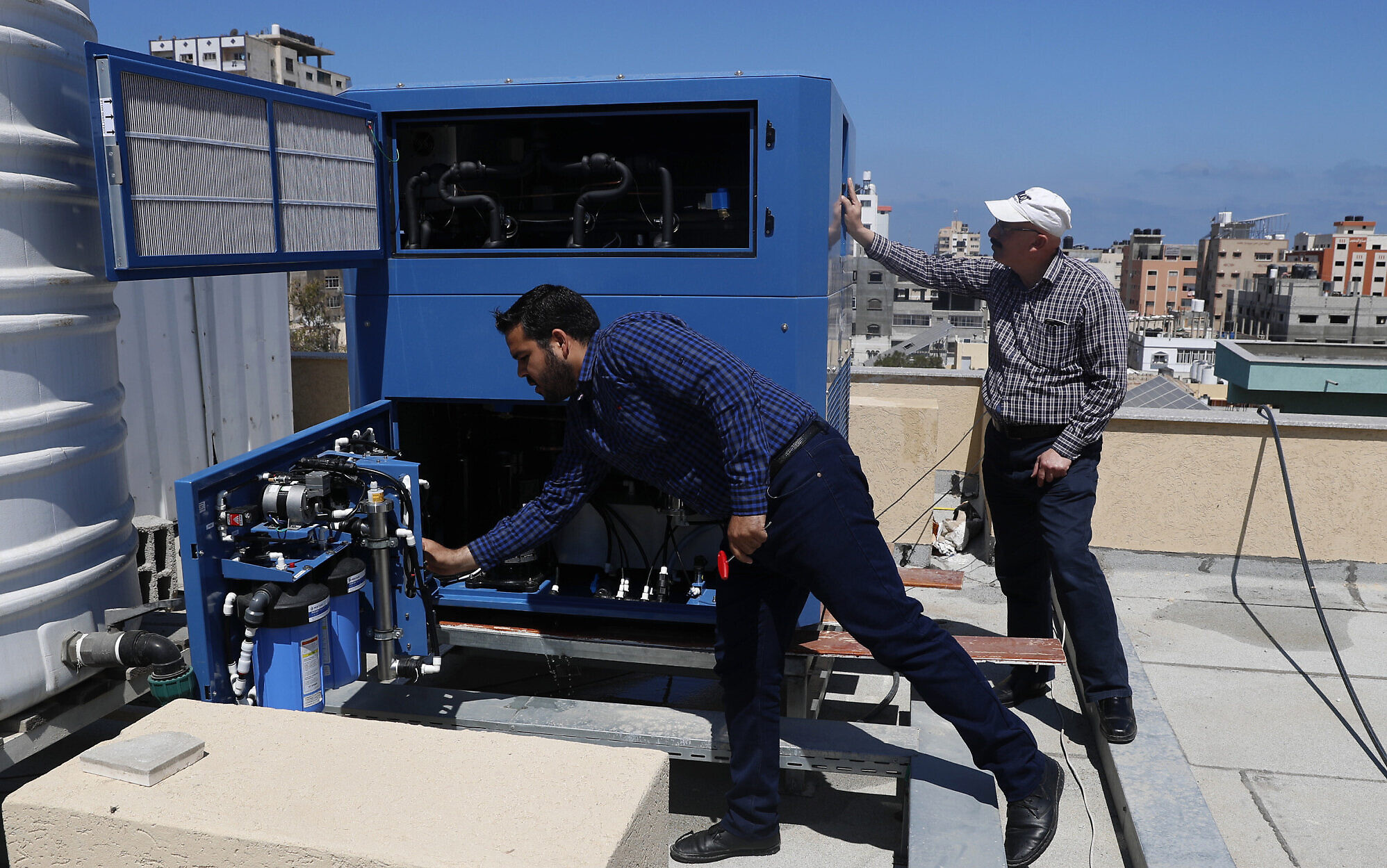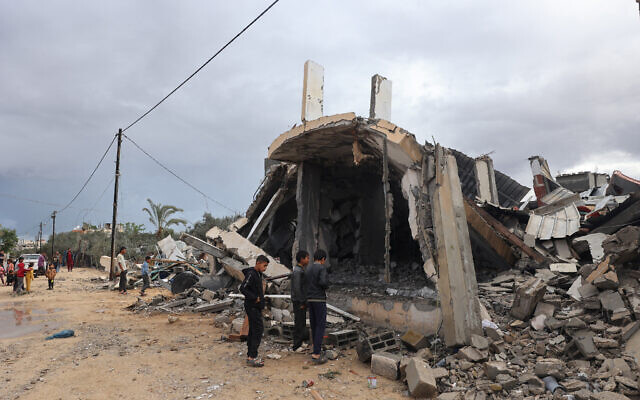



A new Israeli-Palestinian project to meet the need for water, sanitation, hygiene and energy in the Gaza Strip between the end of hostilities and rebuilding of the enclave is to be launched Friday.
Palestinian organization Damour for Community Development in Gaza and the Arava Institute for Environmental Studies, which already have an established track record of working together on off-grid, solar energy-driven solutions in Gaza and the West Bank, believe that such infrastructure can be quickly provided and scaled up to immediately improve the humanitarian situation in the coastal enclave.
The launch event, in English, at the Peres Center in Tel Aviv is sold out, but can be accessed via Zoom.
According to UNICEF, 96 percent of the strip’s freshwater was unsafe to drink even before the war because of contamination and high salinity.
Energy provision was inadequate and power cuts were frequent.
The war, now in its eighth month, has wreaked widespread destruction on large swaths of the enclave and its infrastructure.
Fuel shortages and the war itself have disabled wastewater treatment, raising the risks of water-borne diseases such as cholera, typhoid, diarrhea and tuberculosis.
More than half of all structures have been destroyed, damaged or possibly damaged since the war erupted, according to preliminary satellite analysis by the United Nations.
As The Times of Israel reported this week, Israel has quietly gone to significant lengths to fix the enclave’s water infrastructure.
For the new project, Jumpstarting Hope in Gaza, Damour and the Arava Institute have put together a consortium of companies offering a range of services.
The solutions include:
Other organizations in the partnership include Home Biogas and Gigawatt Global, as well as initiatives offering off-grid services in internet connectivity, agriculture, public health, women’s empowerment, and technical training.
The Arava Institute, based at Kibbutz Ketura in southern Israel, brings Israelis, Palestinians, Jordanians, and international students and experts together through a variety of programs, all based on the conviction that environmental problems know no political boundaries, and that the best way to solve pressing issues such as water and energy shortages is together.

